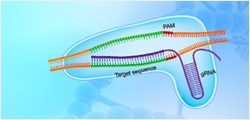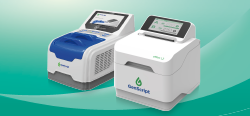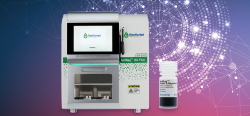| Specificity |
The product is specific for human CD8. |
| Host Species |
Mouse |
| Immunogen |
Recombinant human CD8 |
| Species Reactivity |
Human |
| Conjugate |
Unconjugated |
|
Working concentrations for specific applications should be determined by the investigators. The suitability of this antibody for applications other than those listed below has not been determined. For flow cytometric staining, the following concentration range is recommended starting points for this product and is suggested that the reagent be titrated for optimal performance for each application. |
| Application |
Recommended Usage |
| Flow Cytometry |
≤ 0.5 μg per million cells in 100 μl volume. It is strongly recommended that the reagent should be titrated for optimal performance for each application. |
|
| Form |
Liquid |
| Storage Buffer |
Supplied in 10 mM Sodium Citrate, 154 mM NaCl, pH 6.5. |
| Concentration |
1 mg/ml |
| Storage Instructions |
The product remains stable up to 12 months at 4 °C from date of receipt. For longer time storage, store at -80 °C. Avoid repeated freeze-thaw cycles. |
| Purification |
Protein A affinity column |
| Isotype |
Mouse IgG1κ |
| Clonality |
Monoclonal |
| Note |
GenScript can customize this product per customer's request including conjugations, product size, buffer components, etc. |

Flow cytometric analysis of CD8 expression on human peripheral blood lymphocytes. Human PBMC stained with Anti-Human CD8 Antibody (F002), mAb, Mouse (GenScript, Cat. No. A02212. Red) or with mouse IgG1 isotype control (Gray), followed by goat anti-mouse IgG PE-conjugated antibody. Data shown was gated on CD3 (+)/SSCLow T lymphocytes.
| Target Background |
CD8 (cluster of differentiation 8) is a member of the immunoglobulin superfamily found on the majority of thymocytes, a subset of peripheral blood T cells, and NK cells (which express almost exclusively CD8a homodimers). CD8 antigen is existed as a homodimer composed of two alpha chains or as a heterodimer composed of one alpha and one beta chain. CD8 acts as a co-receptor with MHC class I-restricted T cell receptors in antigen recognition and T cell activation and has been shown to play a role in thymic differentiation. CD8+ cytotoxic T cells are crucial for the killing of virus-infected cells and tumor cells. |
| Synonyms |
CD8; T-cell surface glycoprotein CD8 |
For laboratory research use only. Direct human use, including taking orally and injection and clinical use are forbidden.





































